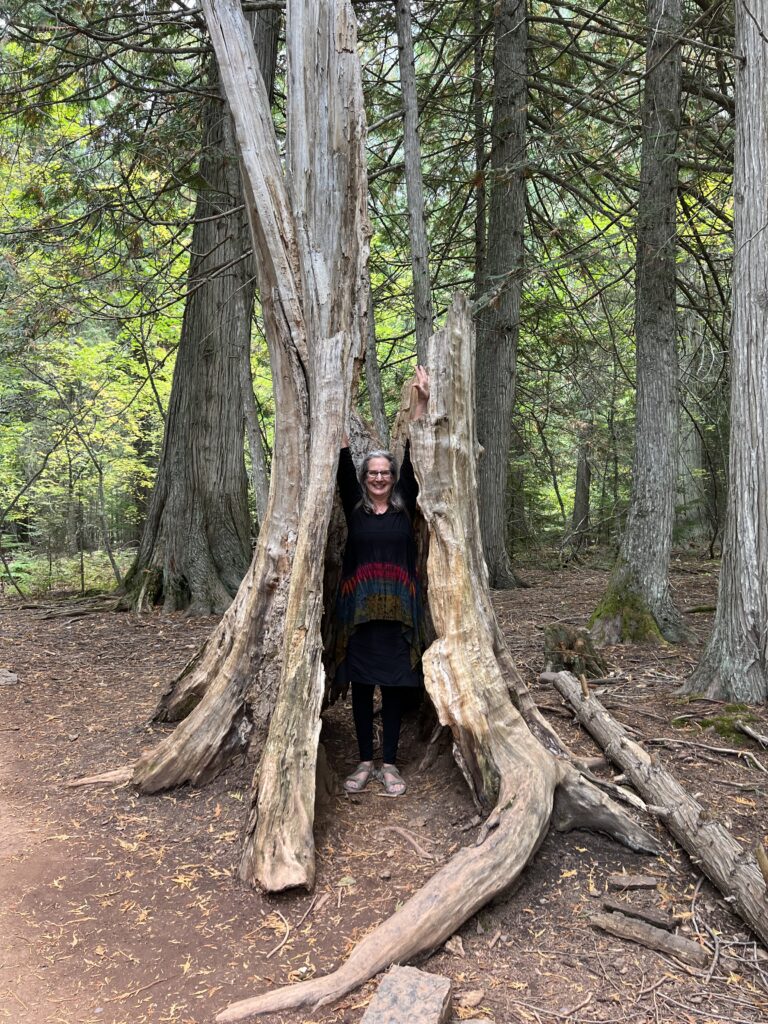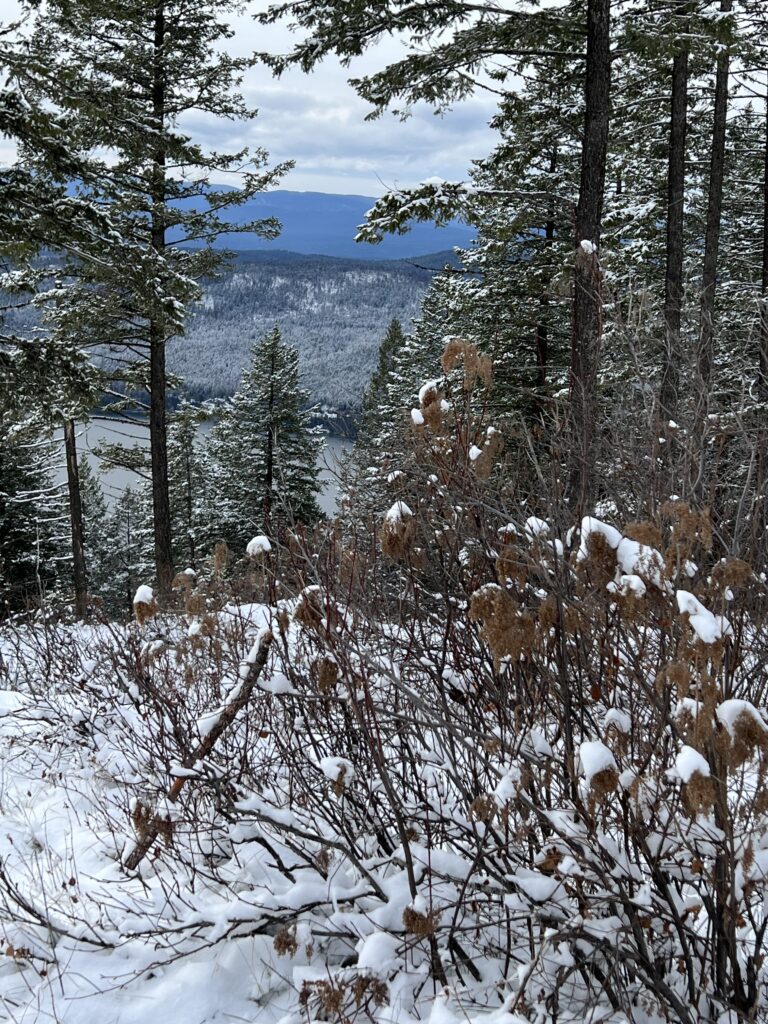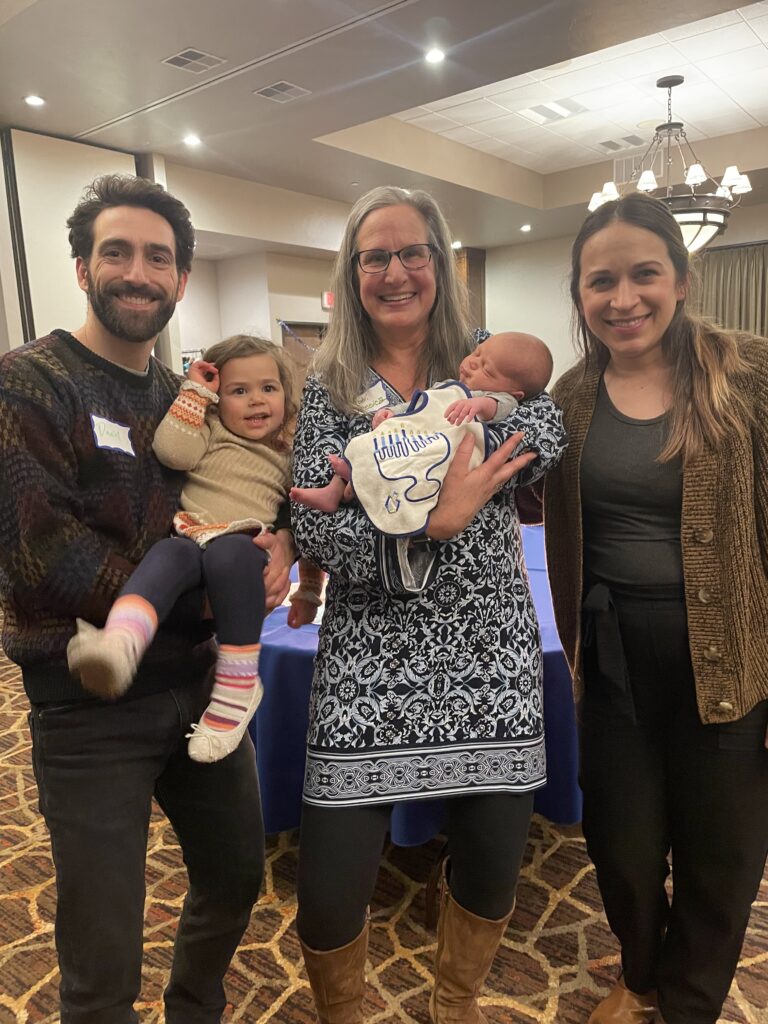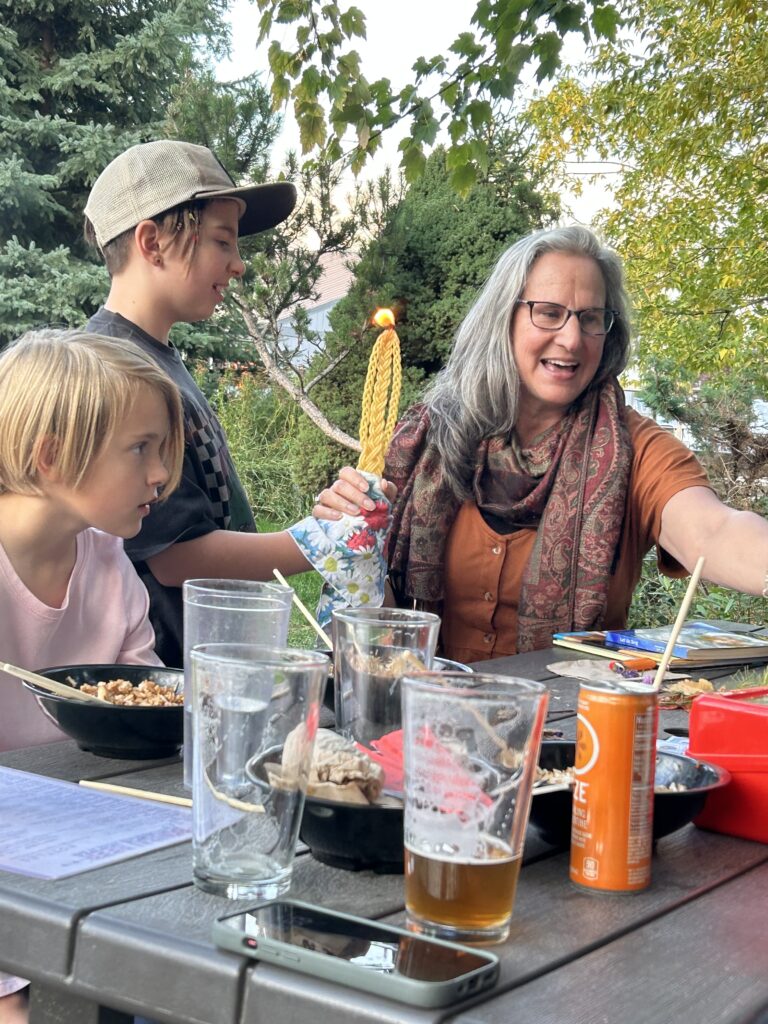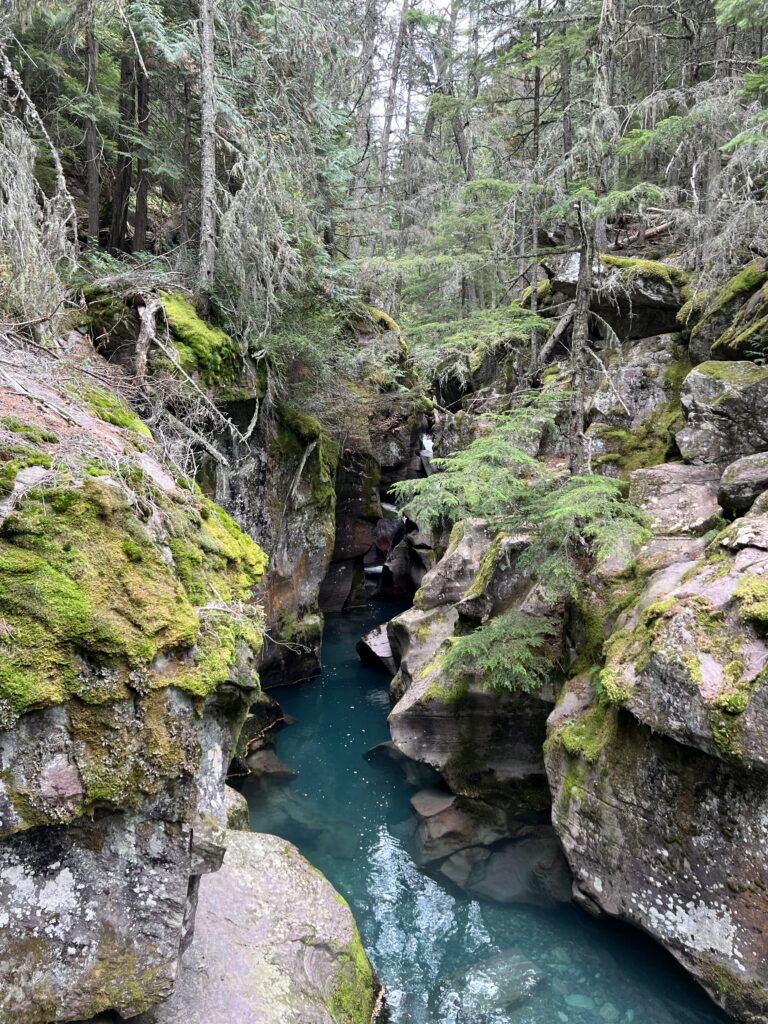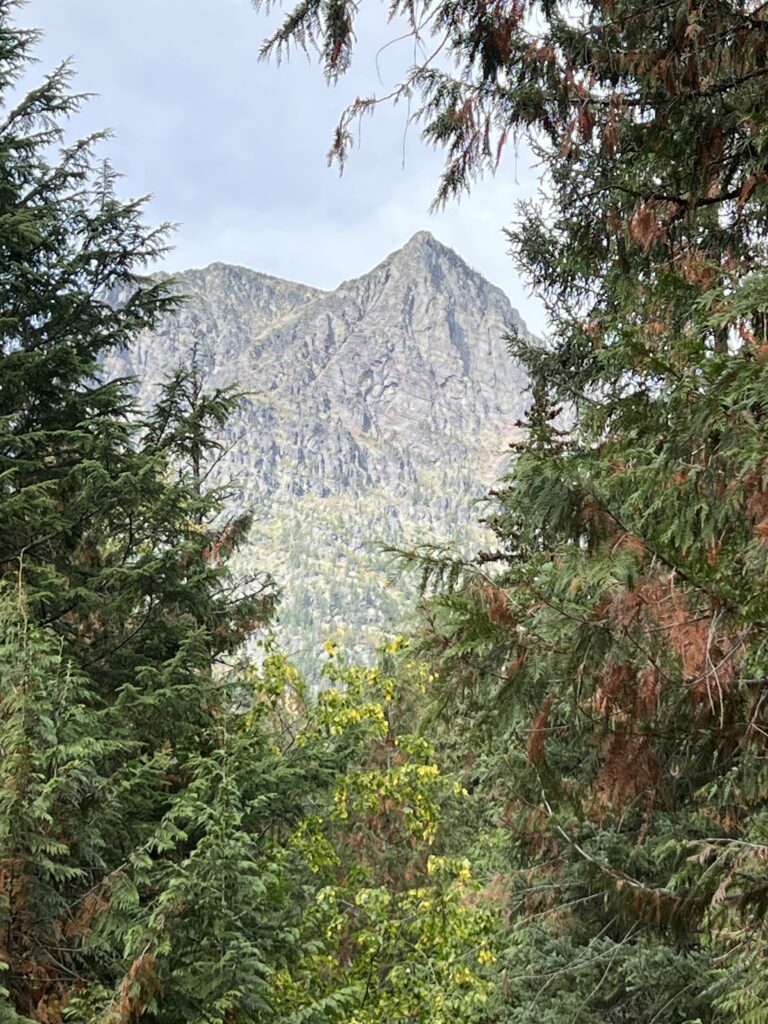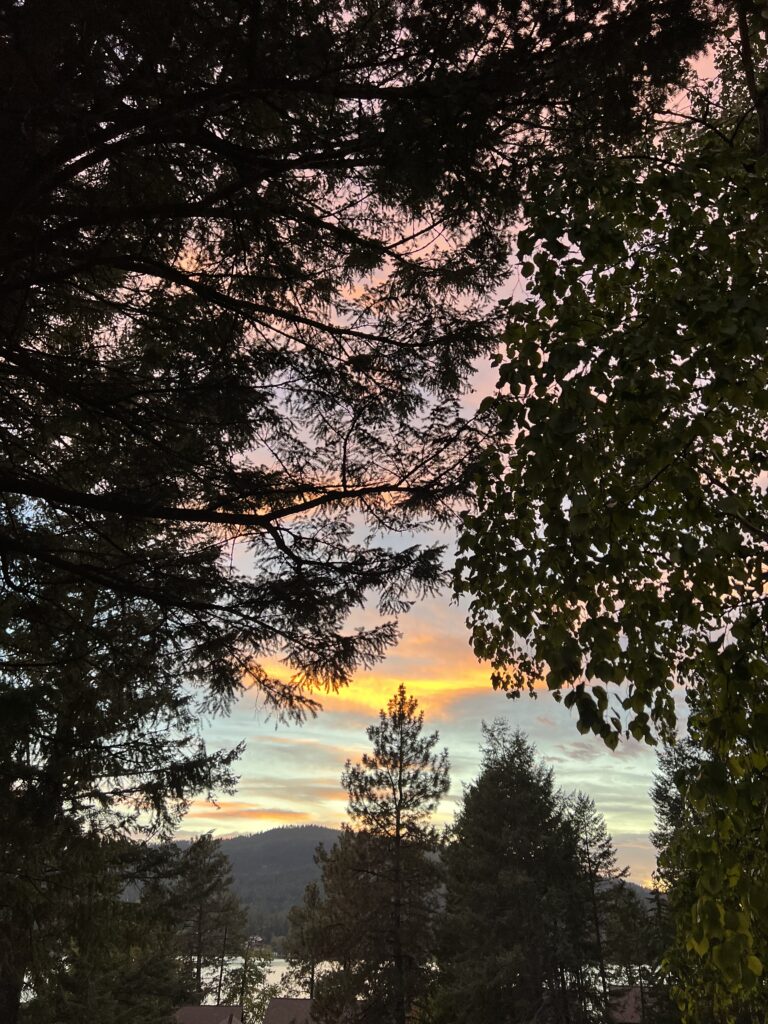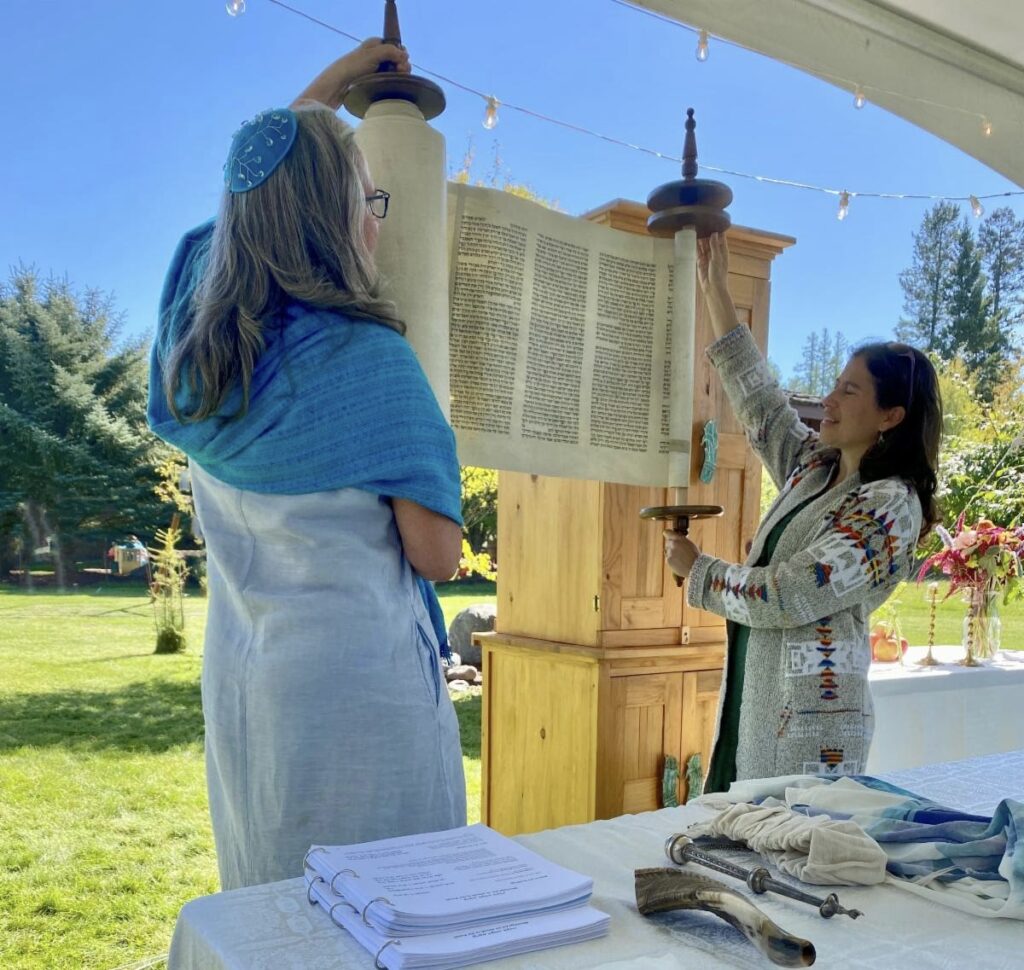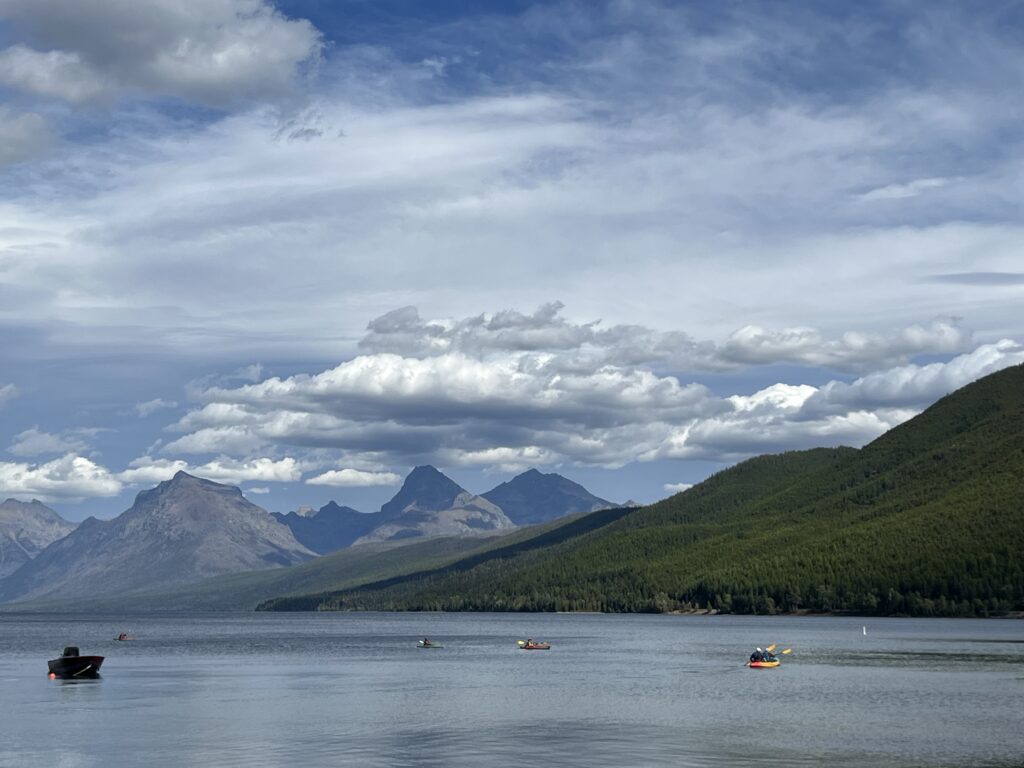My Spiritual Journey and Life’s Work
My Jewish journey, like many spiritual paths, is not a linear one. When I was seven, the first woman rabbi in North America was ordained within Judaism’s Reform movement. As a kid, Jewish family and congregational life as well as summers at Jewish camps awakened a voracious interest in Judaism’s rich liturgy and melodies that foreshadowed my rabbinic pursuits. Through high school, I imagined being a cantor or rabbi and participating in leading services as often as possible.
Ironically, as an undergraduate at Brandeis University, where there were many more Jews and ample opportunity to pursue Judaic studies, I experienced, for the first time in my life, harsh judgment around different levels of religious observance – a practice I now refer to as “Jews out-Jewing” one other. This prejudice was alienating to my young and sensitive soul. I naively imagined that all Jews were part of a “big tent,” diverse in our levels of observance and practices, yet all a part of a large tribe.
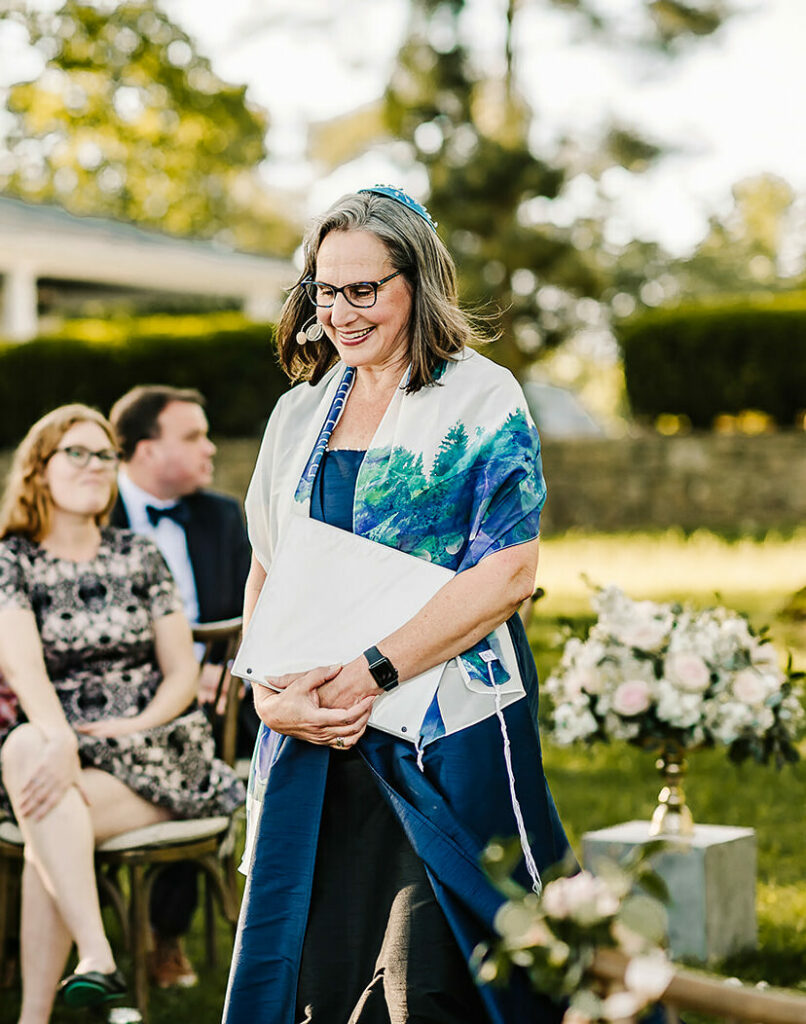
Although I arrived at college with experience of people unfair judging me or my family because we were Jews; I had never experienced the sting of a statement that I wasn’t “Jewish enough.” Hurt and with all the righteous indignation of a teenager, I absented myself from organized Jewish involvement and found community through other interests. I nurtured twin passions for musical theater and classical choral performance, and studied philosophy and politics (which Brandeis refused to call “political science”).
My liberal arts education, my love of words—well-written and spoken, and my comfort public performance and advocacy, served me well in the career that preceded my mid-life calling. Upon graduation from The Ohio State University College of Law, I served as an attorney, mediator, and facilitator of conflict transformation, assisting others in learning and utilizing collaborative approaches to systemic and interpersonal disputes. My volunteer efforts continued to involve singing and organizational leadership, while also pursuing opportunities to actively participate in social justice efforts in my community.
A lifelong learner, I never stopped feeding my love of Judaism with new books and opportunities for study. One summer, several new books inspired me to design a monthly ritual to celebrate Rosh Chodesh (the new Hebrew month/new moon). This became a popular occurrence in my congregation and rekindled my love-affair with liturgy and soulful Jewish music. I was learning that a natural aptitude for cultivating meaningful Jewish experiences for people was a gift that I didn’t want to ignore. In 2006, I was central to the formation of The Little Minyan, a chavurah that grew into a central Ohio congregation ~ Kehilat Sukkat Shalom. We were a small group of committed dreamers who created a grassroots kehilah/community. We designed a highly participatory model that engaged us in actively creating our Jewish communal experience. It took an enormous amount of time, learning, and dedication, and we preferred it to the more passive engagement and limited satisfaction of our synagogue experiences. In 2009, we very intentionally affiliated with the Reconstructionist movement (known today as Reconstructing Judaism), in large part because we felt it best reflected our sense of Judaism as an evolving and traditionally-rooted approach to spiritually meaningful, intellectually rigorous, and justice-seeking, egalitarian and consensus-driven Jewish community.
I continued to develop my spiritual leadership skills, and in 2010, enrolled in an intensive training program for congregational worship leaders (DLTI – Davenen Leadership Training Institute) designed and run by rabbinic and cantorial leaders of Jewish Renewal. Within this immersive experience, I was finally able to listen and pay attention to my rabbinic calling. I had “heard” this calling earlier in life; it had persisted quietly, influencing my life’s journey, relationship with Judaism, and sense of the sacred over the decades. In truth, I had wanted to be a rabbi (or hazzan/cantor) from my earliest memories of Jewish prayer, but it wasn’t until 2011 that I had the holy chutzpah to trust my kishkes and take an enormous leap of faith.
I joined the ALEPH Ordination Program to grow into the role I was already beginning to serve within the Kehilah. The growing community nourished their “home-grown emerging rabbi” in reciprocal appreciation for my energetic stewardship. The children of our community and many of their parents were the first to call me “rabbi Jessica,” a title bestowed with love and appreciation. Publicly, however, I declined this title and honor until January 7, 2018 / 20 Tevet 5778, when I received s’micha (transmission of the sacred capacities of rabbi, teacher of Torah, pastoral counselor, and guide) from my teachers in acknowledgement of their confidence in my skills, appreciation of my talents, and delight to call me a colleague.
At the heart of my “rabbinistry” is an exuberance for Judaism’s agrarian roots and cycles of time, deep well of wisdom, spiritual practices for every day living, capacity to hold and appreciate the sacred tension of divergent opinions and ideas, rigorous study and discussion across generations and millennia, and diversity of practice across the globe.
It is an honor and joy to be trusted to assist Jews who feel some ambivalence about their Jewish identity, in renewing a meaningful connection with Jewish values and practices. In addition to working with Jews, I love any opportunity to engage and learn with those who feel drawn to Jewish wisdom and faith tradition. This includes those who were born and raised within other religious or secular paths and now live in loving relationship with a Jew, and those who feel drawn to convert to Judaism. Helping people to find value in a connection with the divine sparks of their Jewish journey is an intuitive strength I am honored to share.
I also find deep meaning in the “Torah of the public square,” addressing social and environmental justice issues through a spiritual lens. My passions for eating, cooking, fresh produce, and justice, fueled my involvement in food justice issues. My love of hiking, camping, and immersive experiences of nature’s vast beauty and power, fuel my interest in the application of ancient Jewish values and laws to modern agricultural practices, environmental justice, and climate crisis. I love to speak with folks about eco-kashrut practices and Judaic values that teach and support a way of living with a focus on sustainability and planetary health and balance. This and other endeavors are also opportunities to create meaningful collaborations in both Jewish and interfaith contexts. I adore the dynamics and generosity of interfaith work, and have learned much from my colleagues about the importance of understanding and utilizing our privilege in our work to ensure marginalized people and communities to have a greater voice.
Although I love being called “rabbi,” my favorite earned title is “Mom,” the name I’m called by two young men I admire greatly and who continue to teach me about parenting and how to tend important relationships. Both have completed college and are enjoying meaningful work in Ohio and Wisconsin.
I am also a daughter who accompanied her Mom, z”l, and Dad through prolonged terminal illness, a sister and sister-in-love, and part of a blended family. These roles and the ways in which they require compassion, courage, patience, fortitude, forgiveness, and self-care continue to inform my “rabbinistry” daily. My friendships as well as the connections made each day with complete strangers are powerful forces of illumination, comfort, and joy.
In 2020, as the pandemic was transforming our lived reality, I moved to Nashville, Tennessee, to marry my beloved husband and b’shert (meant to be/soulmate), Eric Stillman. As I transitioned to a new community during a global pandemic, my ritual artistry grew to encompass my creative outlet of braiding 100% natural beeswax Havdalah candles (#HavdalahHappiness). Eric and I were married during the pandemic and just after making Havdalah between Shavuot/Shabbat and the coming week. Through the miracles of modern technology, we were able to share our wedding with 300+ guests, though just seven people stood in the Modern Orthodox sanctuary. Our blossoming partnership is planted in the rich soil of mature, unconditional love, appreciation for their abundance of blessings, and a shared enthusiasm for doing Jewish, professionally and personally. As our country wrestles with challenging issues and the polarity of politics, our marriage and sacred conversations across differing perspectives and shared values are a haven for us both. Regardless of where we live, our love is “home.”
In the summer of 2023, I was asked to consider a long-distance relationship with an amazing community of folks in Northwestern Montana. I had served this incredible congregation in the fall of 2021, when circumstances conspired to put me in exactly the right place at the right moment – in the Flathead Valley of Montana, surrounded by mountains in an open tent, orchestrating prayer and sacred activity to embrace the Days of Awe 5782. With the retirement of their rabbi, the Glacier Jewish Community recalled our time together with fondness and promise. Despite the schlep and the need to spend some of our sacred time online rather than in person, I am thrilled to be serving as the spiritual leader for the Glacier Jewish Community in the Flathead Valley, just outside Glacier National Park (Kalispell/Whitefish). In addition, I serve seekers of the sacred fringes and holy whole of Judaism’s vast tent through individual and group learning, conversations of spiritual exploration, and lifecycle ritual artistry across the United States.
